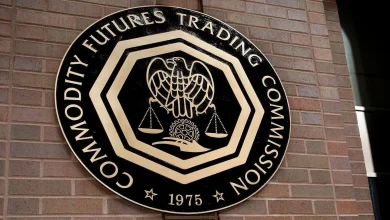UK Treasury Proposes Stricter Oversight for Crypto Firms

The UK Treasury has unveiled a draft consultation introducing tougher requirements for crypto-asset firms. Central to the proposal is a stricter anti-money laundering (AML) framework, coupled with a significant change in ownership disclosure rules. Currently, firms are required to notify regulators when a shareholder holds 25% or more of the business. The draft lowers this threshold to 10%, a shift that policymakers argue will enhance transparency around beneficial ownership and reduce risks of illicit financial activity.
Alongside ownership rules, the consultation expands “fit and proper” tests for senior managers and raises expectations around transaction reporting. Companies operating in the digital asset sector would face more rigorous standards in screening executives, ensuring their qualifications and backgrounds meet higher compliance criteria. The measures are part of a broader push to bring the crypto industry in line with the UK’s established financial services regulatory perimeter.
Consultation timeline and parliamentary process
The Treasury has opened the draft for public consultation until September 30, 2025. Stakeholders, including crypto firms, financial institutions, and consumer protection groups, are invited to provide feedback on the proposed framework. Following this consultation period, the government is expected to finalize the rules and submit them to Parliament in ahead 2026.
If adopted, the regulations will represent one of the most comprehensive shifts in the UK’s approach to digital assets. The initiative builds on previous government announcements, including a commitment to regulate cryptoassets under the Financial Services and Markets Act (FSMA). By formally extending financial oversight into this sector, the UK aims to secureguard consumer interests while reinforcing its reputation as a global financial hub.
Industry reaction and wider implications
The draft has already sparked debate within the industry. Some crypto businesses warn that the new compliance obligations may raise costs, particularly for smaller firms that lack extensive legal and compliance infrastructure. Others welcome the move, arguing that stronger rules will provide clarity and confidence for institutional investors considering exposure to digital assets.
Observers also note that the UK’s approach mirrors broader international efforts to tighten oversight of cryptocurrencies. The Financial Action Task Force (FATF) and other global standard setters have long urged jurisdictions to close regulatory gaps in the sector. With these measures, the UK positions itself as aligning closely with international best practices.
Analysts suggest the Treasury’s challenge will be maintaining a balance between promoting fintech innovation and managing risks associated with digital assets. While stricter conditions could deter some market entrants, a clear and predictable regulatory environment may ultimately encourage sustainable growth. Policymakers argue that by embedding crypto regulation within the existing financial system, the UK can both mitigate systemic risks and harness opportunities from blockchain innovation.
The coming months will test how stakeholders across the industry respond to the draft proposals. As the September deadline approaches, the consultation process will likely shape the final contours of a regulatory regime that could redefine the crypto landscape in the UK.







